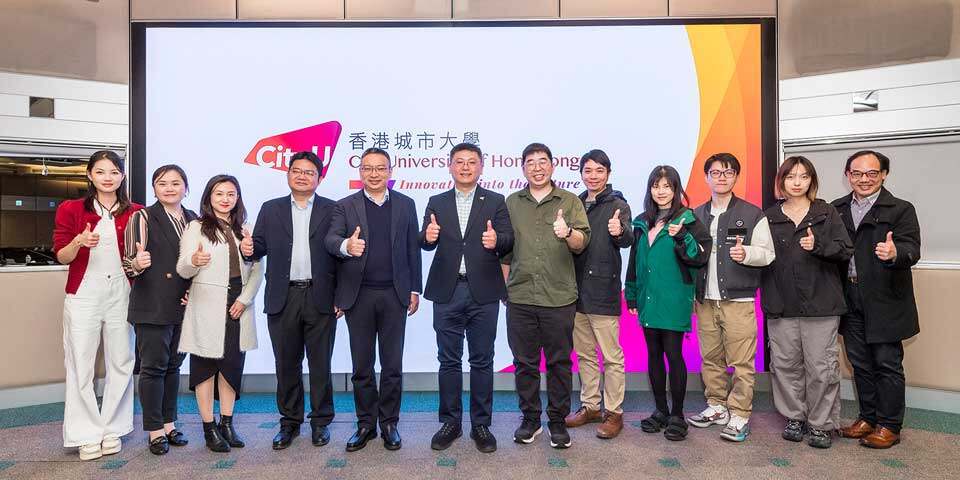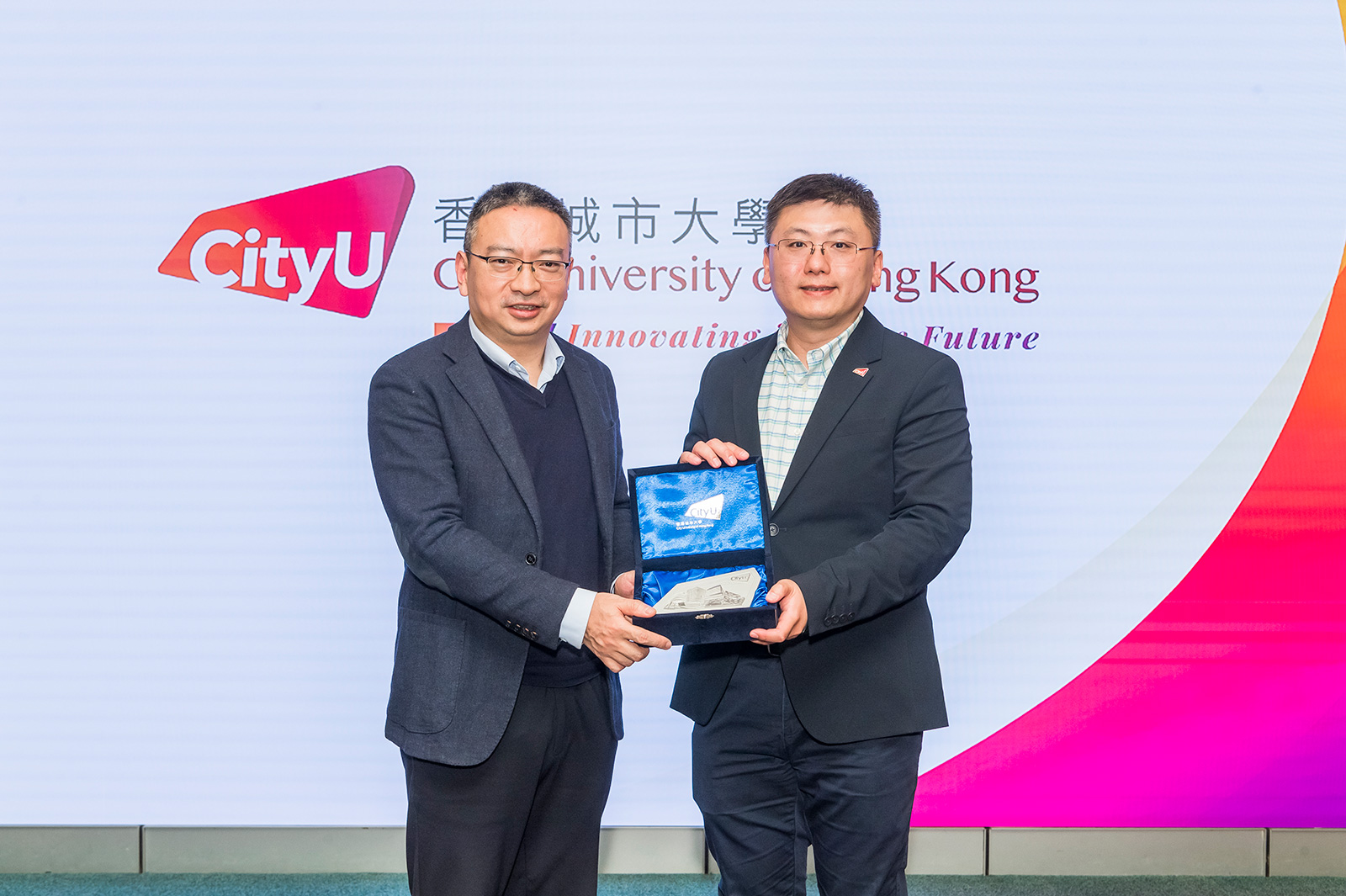A delegation from Central China Normal University (CCNU) visited City University of Hong Kong (CityUHK) on 9 December. They met with senior management of CityUHK and engaged in discussions and exchanges on topics on digital teaching and the application of big data.


The delegation was led by Professor Wu Di, Deputy Dean of the Faculty of Artificial Intelligence in Education of CCNU and Executive Deputy Director of the National Engineering Research Center for E-Learning. The members included Professor Wu Longkai, Professor of CCNU, Ms Zhang Daixi, Professor Assistant of CCNU, and two students from CCNU.
The delegation was warmly welcomed by Professor Ray Cheung Chak-chung, Associate Provost (Digital Learning) of CityUHK, and University members, including Dr William Cheung Man-yin and Dr Leon Lei Chi-un from the Talent and Education Development Office of CityUHK, and Professor Ho Chin-pang from the Department of Data Science of CityUHK.


Professor Cheung thanked the delegation for their visit to CityUHK and introduced the University’s remarkable academic achievements as a young university. CityUHK is dedicated to promoting an internationalised campus and was honoured as the “Most International University in the World” by Times Higher Education (THE) in 2024. The University’s global rankings have been steadily rising, with the latest Quacquarelli Symonds (QS) Asian University Rankings 2025 ranking CityUHK tenth in Asia and third in Hong Kong. CityUHK was ranked among Asia’s top 1% of universities. Nineteen academic subjects at CityUHK were ranked in the top 50 in the world, according to the ShanghaiRanking’s Global Ranking of Academic Subjects (GRAS) 2024. “Library & Information Science” was ranked 1st in the world, and “Public Administration” and “Energy Science & Engineering” were respectively ranked 8th and 9th globally, showcasing CityUHK’s outstanding capabilities and further affirming its excellence.
Professor Cheung also pointed out CityUHK’s achievements in innovation, including the establishment of the CityUHK Academy of Innovation, the CityUHK Institute of Digital Medicine, and the Hong Kong Institute of AI for Science in 2024.
CityUHK is committed to fostering an innovative and interactive educational environment, shifting its university courses from teaching-centric to learning-centric. Professor Cheung highlighted CityUHK’s team-based learning approach, which combines digital learning and group discussions. This teaching method allows students to apply their knowledge using real-life examples through discussion, questioning and expressing opinions. Team-based learning allows students to seek consensus and a common direction for a given problem or question, equipping them with the ability to negotiate and communicate effectively with their peers and preparing them for their careers. The CCNU delegation recognised the team-based learning approach at CityUHK, which provides students with an interactive and innovative learning environment, and would like to further explore and carry out research studies with CityUHK.
During the meeting, they engaged in in-depth discussions on digital learning, emphasising the need for careful planning when using AI technology in teaching. It was highlighted that regular assessment of the effectiveness of AI tools in teaching, along with timely adjustments and improvements, is crucial. After the meeting, there were also discussions on other collaboration opportunities, including applying for funds under the National Natural Science Foundation to jointly carry out innovative scientific research.
CCNU, located in Wuhan, is a key comprehensive higher education institution directly under the Ministry of Education. It is a university involved in the development of the national Innovation Platform Project, as well as an International Joint Research Center and a National Science Popularization and Education Base.








































